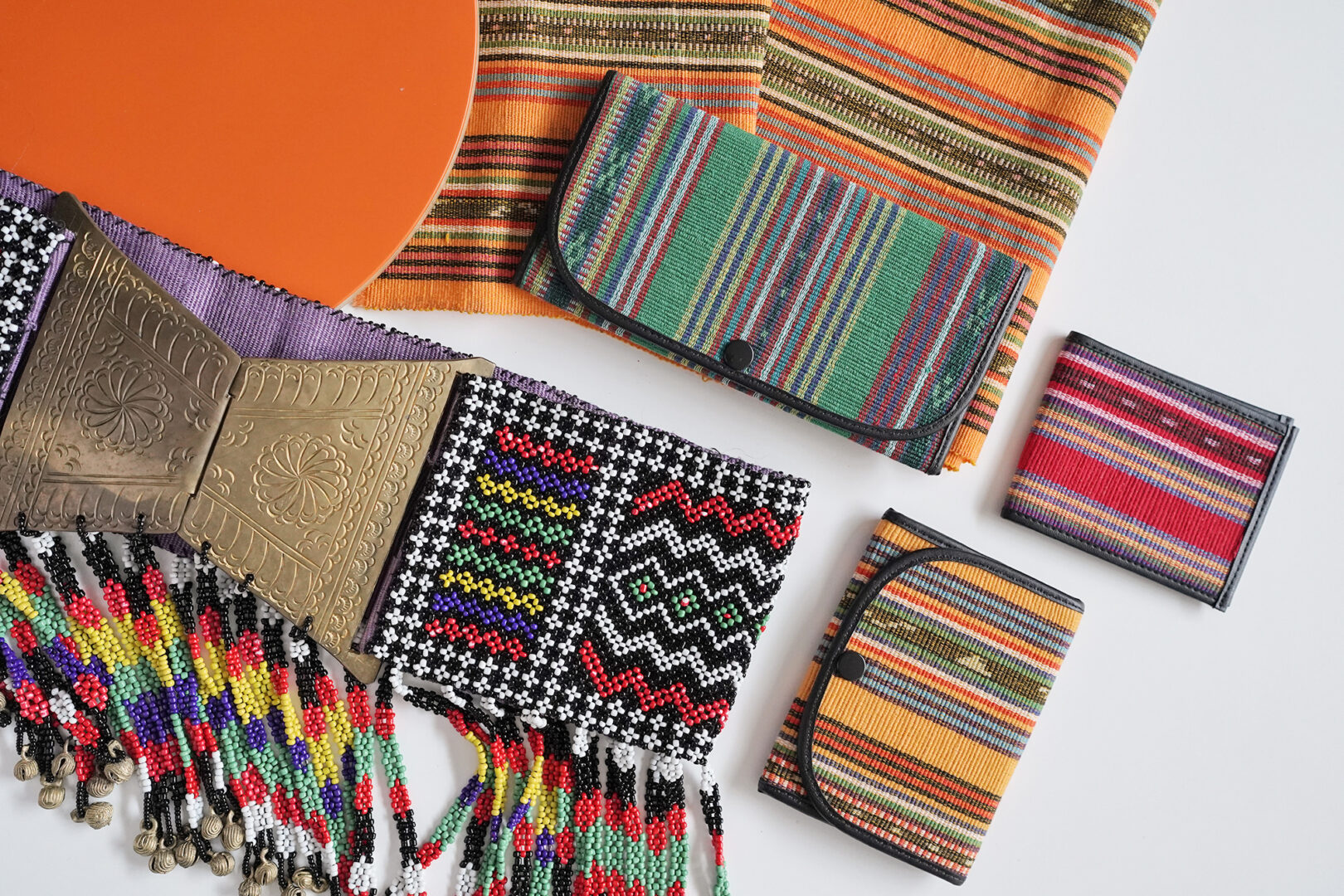Dina Bonnevie, actor and entrepreneur who has taken up the cudgels for local weavers from Bicol and Ilocos, put it simply: “It’s a big thing if you ‘support local’ because when we support our local weavers, we support our heritage.”
After all, she added “the weaves speak of our cultures — the weaves are our culture! These are handed down from generation to generation. So this is a heritage we should be proud of. We hope the weavers will also continue to weave and not let go of their passion.”
Bonnevie talked about her hopes for the textile and crafts communities across the nation, and how she dreams of one day seeing all local government offices wearing uniforms made from local weaves — and to wear them proud. Perhaps, she added, the country could also one day have weaving schools.

Bonnevie is part of this year’s Likhang HABI Market Fair set to unfold at the at the Glorietta Activity Center from 14 to 16 October 2022.
Organized by the Philippine Textile Council, the annual event is on its 12th year, showcasing the arts and crafts of more than 60 vendors of unique, handmade pieces, including “woven fabrics, ready-to
-wear clothes, home accessories, and even locally made furniture and pottery.”
HABI president Adelaida Lim, at the event’s media launch, announced that for this big return to a physical set-up, event stylist” Kitty Bunag has been tasked to transform the Glorietta Activity Center into a heritage hub showcasing the best creations from some of the most celebrated artisans around the Philippines.”

For her part, Bunag said, “The overall look and feel for the HABI Market Fair will be inspired by outdoor souks and markets here and in other parts of the world. Vendor booths will be made of wood and canvas where each retailer can best showcase their products. Textiles hanging from dried ornamental trees serve as the main focal of the venue. We’re creating a space that will be familiar for both local and foreign patrons.”
Yet more to look forward to are the homegrown brands joining the market. These are: Abek Home & Culture, Abre Linea, Accelerate Sulu, Adante Leyesa, Aishe Fashion, Angie’s Yakan Handloom Weaving, Anihan sa Ibaan, Aruga Handwovens, Balud Craft, Bicol Sweetgrass Handicrafts, Camisa Amana, Cariñosa, Casa Garcia, Coco & Tress, Crafted (Ancestral Crafts), Creative Definitions, Ditta Sandico, En Barong Filipino, Gifts and Graces, Habi, Helena Alegre Sculptural Jewelry, Idyllic Summers, Ifugao Nation, Iraya Mangyan Art, Jor-El Espina, Kalinga Weaving, Kaya Mana PH, Knitting Expedition, La Bonne Vie, La Herminia, Lakat Sustainables, Local Home + Art + Fashion, Mabaysay, MCV Designs, Milvidas, Monica Madrigal, Narda’s Nina Abel, Pidayit, Piesa, Pina Seda Primera, PNay, Provenciana, Raquel’s Piña Cloth Products, Ruby Roa, Rurungan Collective, Siegrid Bangyay Pottery, Silahis Arts and Artifacts, Style Isle, Tadeco Home, The Manila Collectible Co, Tinampuso, Tuwas Yakan Weavers, WeaveManila Inc., Woven, WVN Living, and WYC Wear Your Culture.

Two weaving competitions
Something new this year is the Eloisa Hizon Gomez Abaca Competition, which adds to the event’s annual Lourdes Montinola Piña Weaving Competition. For the abaca tilt, contestants will be judged by a panel of experts on Philippine textiles, processes, and materials.
“This is our fifth year of holding the piña competition and since we’ve had it, we’ve noticed that artisans working on piña have been leveling up,” said Lim.
As a member of the ASEAN Traditional Textile Symposium, part of HABI: The Philippine Textile Council’s mission is to promote the art of hand-weaving and provide opportunities for talented Filipino artisans to showcase their products to an eager market.
“We’re the first in this line of promoting indigenous fabrics as fashion,” says Maribel Ongpin, founder of HABI. “Second, while most of the other bazaars have reached a sophisticated level, we continue to go grassroots.”
Aside from direct donations from individuals and companies, the fair is one of the main sources of funding for the council’s projects, which includes preservation of the art of weaving, educating consumers, and pushing locally made products and artists to the national — and global — market.
“As a country, we carry important fibers like piña and abaca that are uniquely ours. [These] are world-renowned. Since museums in the world feature [these pieces, it’s] considered a legacy of Filipino craftsmanship, identity, and the nation,” Ongpin concludes.
Likhang HABI Market Fair 2022 is made possible by the generous contribution of council sponsors: Glorietta Mall, Ayala Center, Union Bank of the Philippines, The Philippine Gaming Corporation, AY Foundation, Emerging Power Inc., Marubeni Philippines Corporation, Holiday Inn & Suites Makati, Far Eastern University, and Pancake House with radio partners DZRH Manila, RPN DYKB Bacolod City, and DYRF Cebu City.
For more information about HABI: The Philippine Textile Council, please call +63 921 849-6974 or email support@habiphilippinetextilecouncil.com.
